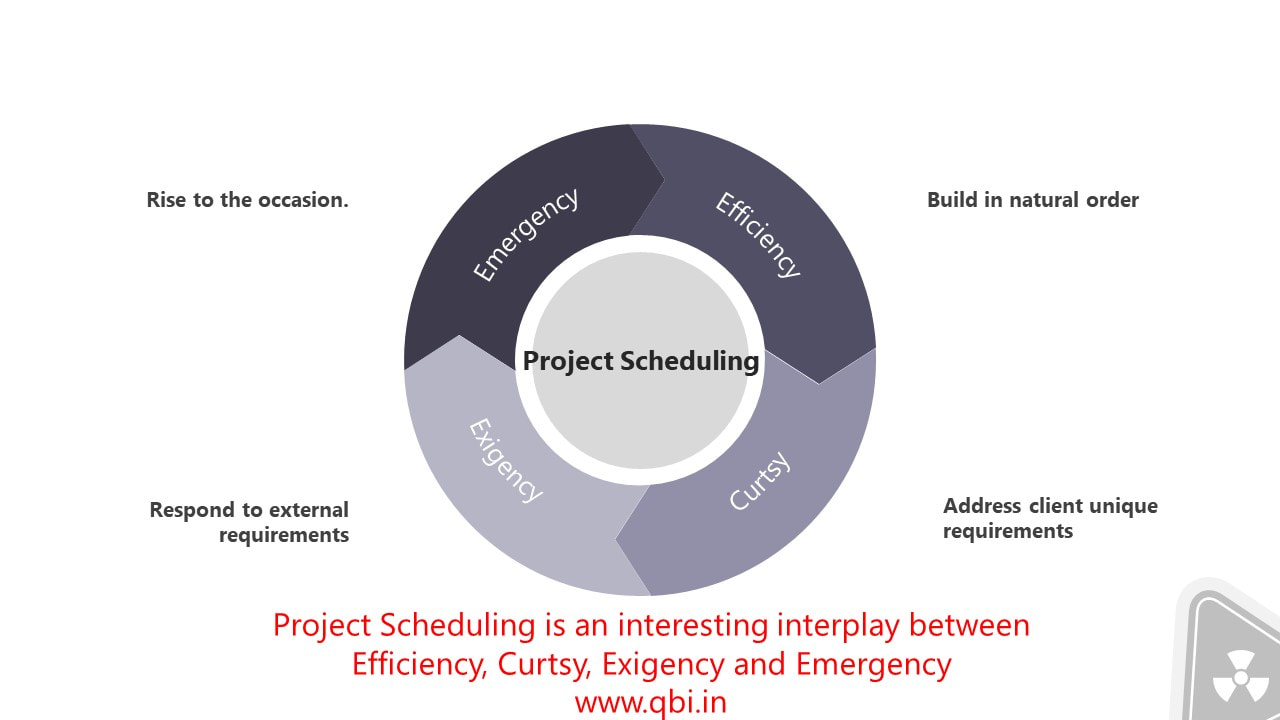"Failing to plan is planning to fail." - Alan Lakein
- Efficiency: Prioritizing for efficiency means considering the natural order in which project modules should be developed. This involves sequencing requirements based on their interdependencies, ensuring that foundational components are built before more complex features. By adhering to this order, the development process becomes smoother, as modules are constructed in a logical and progressive manner. Example: You have to build a software system for your client which has functionalities for
- Employee Database
- Employee Attendance
- Leave
- Payroll.
- Curtsy: The 'Curtsy' approach focuses on client satisfaction by giving priority to requirements that are most important to the client. These could be features that directly address the client's needs, preferences, or competitive advantages. By putting the client's wishes at the forefront, the project is more likely to result in a product that meets or exceeds their expectations. Continuing with our earlier example project let us say this project takes 4 months to complete and let us hypothetically assume each of the 4 modules will be delivered in 4 iterations or 4 delivery cycles or 4 sprints. However the client has to start his business and has the preference to immediately mark the attendance to start with. In this case the project can be taken up with capturing / importing say employee id (unique) , employee name and moving ahead with the attendance module.
"Time management is not about doing more; it's about doing what matters." - Unknown
- Exigency: 'Exigency' pertains to requirements imposed by external factors such as regulations, government mandates, or industry standards. These requirements must be addressed to ensure legal compliance and market viability. Handling these aspects promptly is essential to avoid potential legal issues and maintain a good standing within the industry. Let us say you have delivered the modules 1,2 and 3 and now you are to focus on module 4. However there are new reports regarding employee provident fund which are required to be submitted to the Employee Provident Funds Department and if we do not submit these reports a fine will be levied on the defaulting company. Now in this exigency we can choose to take up this activity first instead of moving on to module 4.
- Emergency: In the 'Emergency' category, the focus is on addressing critical defects or issues that require immediate attention. These may include security vulnerabilities, system failures, or other issues that can disrupt operations or cause harm. Responding swiftly to emergencies helps maintain system integrity and user trust. Let us say we were delivering this system in the order 1-2-3-4 and we have delivered modules 1, 2 and 3 now we need to develop module 4. How ever due to some partial data loss it is observed that there are wrong leave balance updates which are affecting the payroll calculation as well. Now this is an emergency situation the team will now address this emergency situation and focus back on module 2 instead of working on module 4 even if it means a time over run and project delays


 RSS Feed
RSS Feed